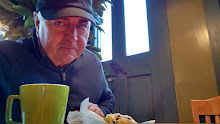It is also believed that Captain Henry J Robert's experience in chairing a church meeting while stationed in New Bedford in the 1860's inspired him to later write Roberts Rules of Order.
Having Quaker roots, the city has always been a thorn in the side of the national government. During the time of slavery, New Bedford was part of the Underground Railroad. Many slaves stowed on cotton ships that brought the raw product to the city for manufacturing. The most famous slave was Fredrick Douglass
New Bedford was the home of Berkshire Hathaway
In 1955 Berkshire Spinning merged with the Hathaway Manufacturing Company which was founded in 1888 in New Bedford, Massachusetts by Horatio Hathaway as a cotton milling business. Hathaway was successful in its first decades, but it suffered during a general decline in the textile industry after World War I. At this time, Hathaway was run by Seabury Stanton, whose investment efforts were rewarded with renewed profitability after the Depression.. After the merger, Berkshire Hathaway had 15 plants employing over 12,000 workers with over $120 million in revenue and was headquartered in New Bedford, Massachusetts.
The plant along with other mills was the draw for many Western European Immigrants like those from the British Isles, and the Iberian Peninsula, (and Poland.)
